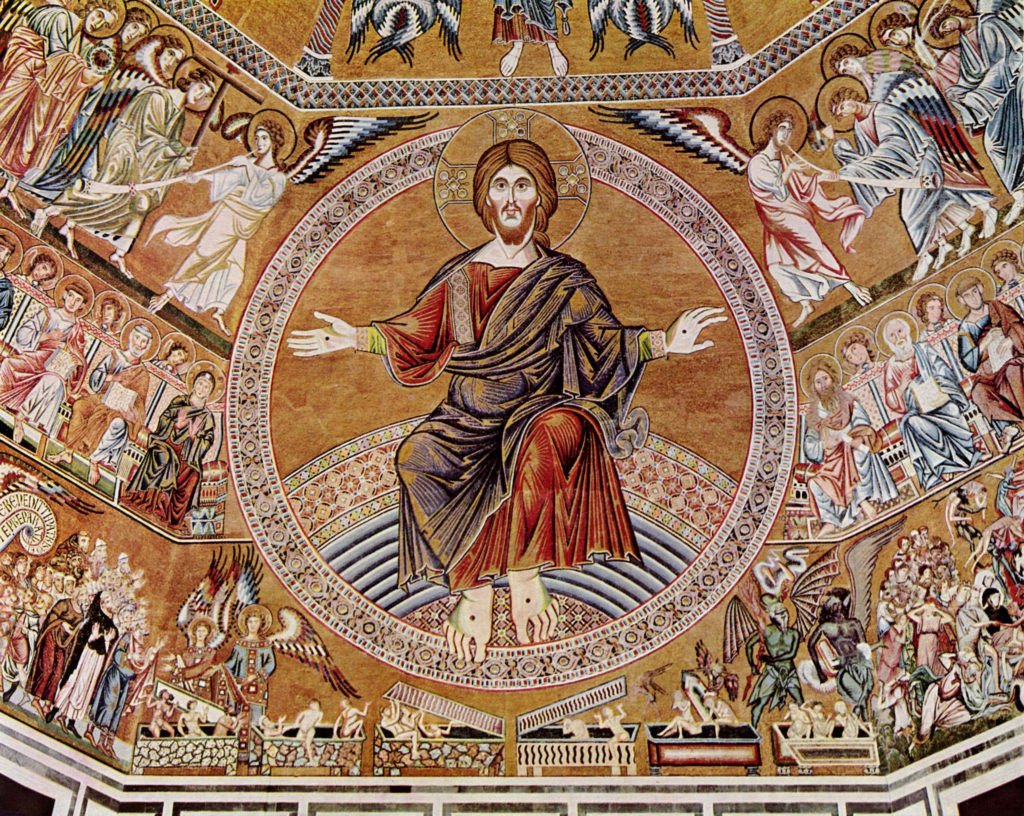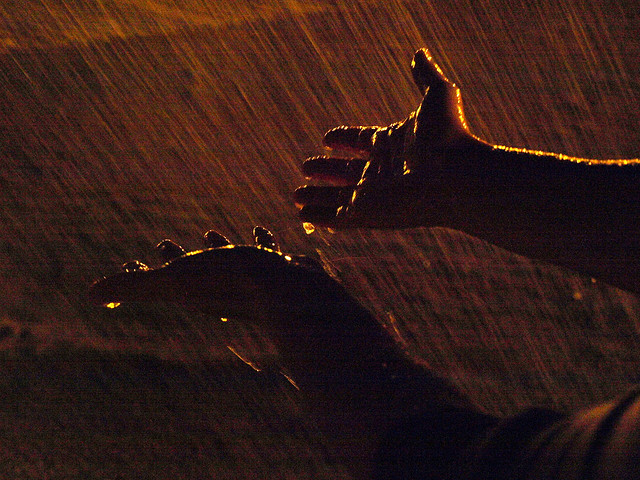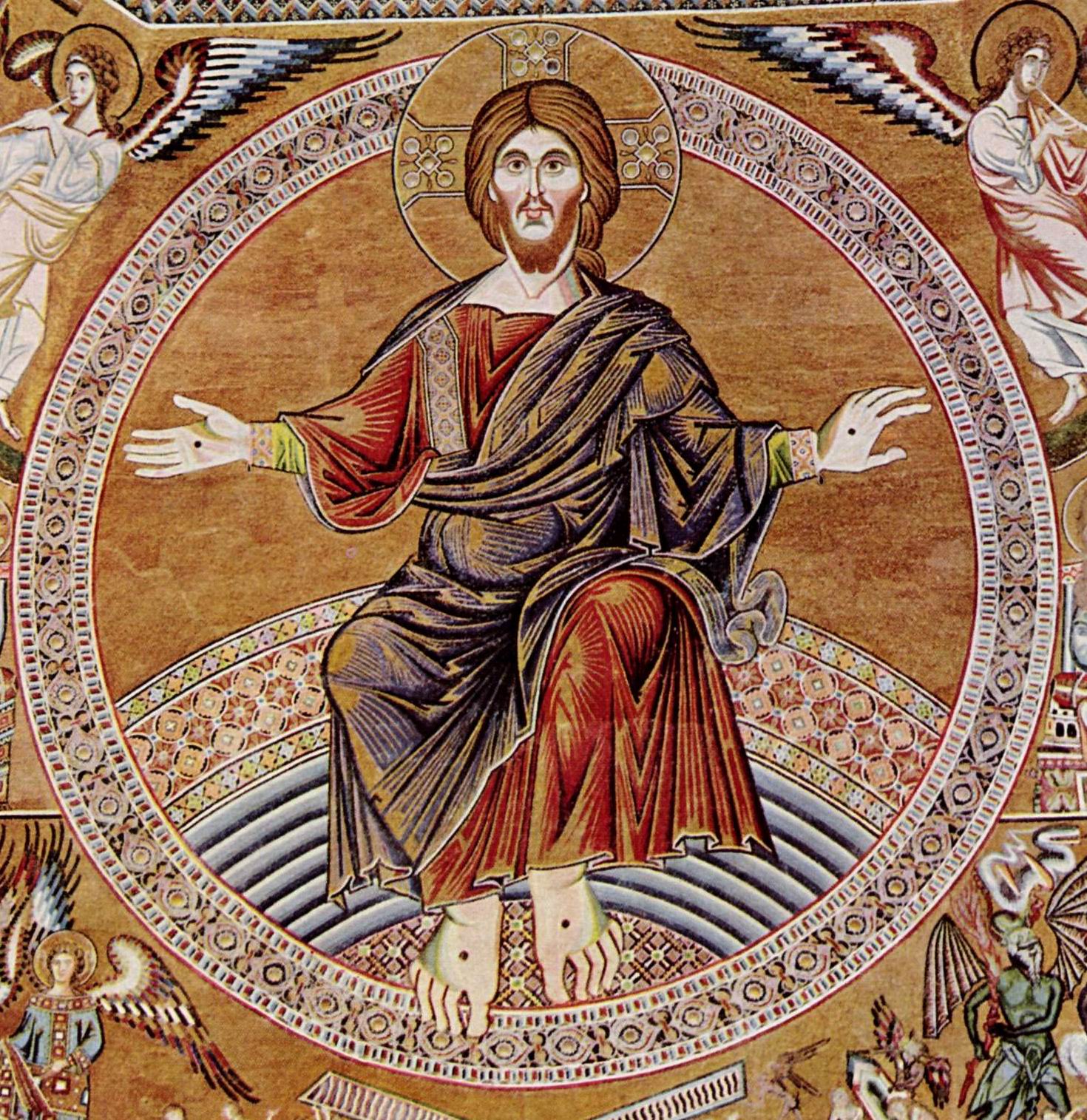Revised Common Lectionary Reflection, Reign of Christ Sunday, Year A
November 22, 2020

Lessons: Ezekiel 34:11-16, 20-24; Psalm 95:1-7a; Ephesians 1:15-23; Matthew 25:31-46
Theme: God’s faithful and generous people pay attention to the world around them, seeing and responding as their faith in the Christ moves them through the indwelling of the Holy Spirit.
Key Scripture: And the king will answer them, “Truly I tell you, just as you did it to one of the least of these who are members of my family, you did it to me.” – Matthew 25:40
Doesn’t everything die at last, and too soon?
Tell me, what is it you plan to do
with your wild and precious life?
— Mary Oliver, from “The Summer Day”
This week brings with it the end of the liturgical church year and the final parable in Matthew’s gospel, the apocalyptic separating of the sheep and goats, the great judgment of the nations, and the surprise that accompanies such judgment. Again, as with all of Jesus’ parables, where one locates oneself in the narrative can make all the difference, including how one understands context.
Matthew’s audience consisted primarily of Jewish converts to “the way” of Rabbi Jesus. They were still reeling from the recent destruction of the Temple and the persecution from both Romans and religious leaders. It was a grueling time to be a disciple of the Christ. Christians in North America do not face this kind of persecution; in fact, we’re viewed as more irrelevant, out of touch, and whiny by those who are not part of the Jesus tribe. One has to wonder just who folks are talking about when they use the word “Christian” in our context. Is it the evangelical branch of the family tree, those who seem focused on one or two issues and seek to validate them through political process? Is it the mainline church members who fall at various points along the social/ethical/political spectrum? Is it the progressives who rise to action and believe in participating in the in-breaking of God’s way? Or, is the focus on “the nations” and how they treat the marginalized Jesus followers?
Looking at this parable from various points of view can be instructive. It can also be challenging to one’s faith and life experience as a follower of Jesus. This strange parable again asks us to ponder these questions: Who are you? Whose are you? Are you paying attention? The first and last questions may be more difficult to answer. Hopefully we know that we belong to God and that is “whose” we are. When asked “who are you,” we should be able to answer “beloved child of the Creator of the Cosmos” (or something similar) in addition to all the other “labels” we have assigned or that others have assigned to us. Whether we are paying attention is tough because so many things, people, and issues clamor for our short attention spans. In fact, a recent study by Microsoft found that the average human attention span is down to eight seconds, shorter than that of a goldfish (nine seconds).

In her poem, “The Summer Day,” Mary Oliver writes, “I don’t know exactly what a prayer is. I do know how to pay attention…” What she describes in her poem as paying attention is definitely a prayer, an openness to the Creator showing up in the creation, and a challenge to live one’s “wild and precious” life to the fullest.
Paying attention is a form of deep devotion. It is the only way we will see the Christ in others and in this wonderful interconnected world that we sometimes take so very much for granted. Attention moves into awareness and from there action is the next logical step. We act to meet the needs of others, to be present and fully participating in this world, looking outward rather than inward to love God and neighbor. To be clear, our actions don’t save us any more than indulgences were salvific when Martin Luther was protesting against them. Our actions are grateful and loving responses to our attention and awareness of the One who holds the entire cosmos together. Our actions are mercy made visible in Jesus’ name. When we combine our individual actions with those of the Body of Christ of which we are a part, then amazing things happen and the Christ is made visible in the world.

We have been grafted into God’s family, and by the gift of the Holy Spirit we are equipped to do kingdom work here and now. Let us enter into each day with gratitude and attention. We may never know when we will serve Jesus in the form of one of the “least of these.” Yes, my friends, what will you do with your “One wild and precious life?”
In Worship
Jesus is talking with his disciples this week, teaching them all that he can before the wheels of his death begin to roll. Do you ever wonder about the sheep and goats being addressed collectively rather than as individual creatures? What if Jesus is addressing us collectively as a congregation—as a Body of Christ? Would we collectively have provided a faithful witness and gracious response to the grace and mercy we have received? Or, is it possible we may have overlooked or not taken advantage of opportunities to serve a Christ’s hands and feet in this world? How are we stewarding this great love of Christ?
Stewarding that gift of love faithfully and completely is critical, as is realizing that we do not do this work of discipleship and disciple-making alone. We are also one small blip on the timeline of human history, so we walk by faith in hope, loving God and neighbor to the very best of our abilities. Spend some time today talking about the collective “we” of your congregation. Remind them that even the Lord’s Prayer uses the collective “our” and “we.” Each person has God-given gifts and talents that are best expressed in the collective Body of Christ. Together we are stronger. Together our love and forgiveness can be bigger and bolder. We are a part of a much greater whole. Consider using the following Reinhold Niebuhr quote as a call and response in worship this week:
“Nothing that is worth doing can be achieved in our lifetime; therefore we must be saved by hope. Nothing which is true or beautiful or good makes complete sense in any immediate context of history; therefore we must be saved by faith. Nothing we do, however virtuous, can be accomplished alone; therefore we must be saved by love. No virtuous act is quite as virtuous from the standpoint of our friend or foe as it is from our standpoint. Therefore we must be saved by the final form of love which is forgiveness.” – Reinhold Niebuhr
With
Youth
How do the youth hear this week’s parable? Give them some time to think about
it and discuss it. Then show them the short Claymation film “Martin the
Cobbler” (1977), that recounts the parable through the fiction of Leo Tolstoy
(and narrated by his daughter, Alexandra Tolstoy). After the film, invite the
youth to share any stories of where they have encountered Christ in “the least
of these.”
With Children
This week’s focus verse is Matthew 25:40: And the king will answer them, “Truly I tell you, just as you did it to one of the least of these who are members of my family, you did it to me.”
(You will need several pairs of glasses: dark sunglasses, wonky glasses that make your eyeballs look funny, reading glasses, night vision glasses, opera glasses, etc.)
Sometimes I can’t see clearly. I need glasses to drive and read and work on my computer. Sometimes, however, I think I still can’t see clearly with my glasses. Maybe I can try on a few of these and see if they help. (For each pair of glasses you try, find a reason they don’t work.)
You know, there are simply times that we don’t see clearly. Our parable today talks about what was seen and what was not seen. Some people (sheep) didn’t always see the results of what they were doing to help others, but they were always helping, loving, and caring. Turns out they were caring for Jesus. On the other hand, some people (goats) went through life really not seeing much at all, only what they wanted to see and what benefited them. Turns out they were missing the mark on caring for and loving Jesus. In the end, they willingly miss out on all the abundance and goodness God desired for them.
It’s important that we have good vision. If we allow the Holy Spirit to lead and guide us, we will see Jesus almost everywhere we look. In thanksgiving for his love and mercy in our own lives we will want to share that with others. In doing so we will see Jesus.
Finish with a simple echo prayer and blessing.
Dear God (Dear God),
Thank you (Thank you) for loving us (for loving us) and helping us see you (and helping us see you) in others (in others). Give us clear vision (Give us clear vision) and love for you and others (and love for you and others). Keep us from fear (Keep us from fear). Keep us hopeful (Keep us hopeful). Make us helpful (Make us helpful). Give us peace (Give us peace). Amen (Amen).
Weekly
Stewardship Bulletin Insert
We may never fully know the reach of our stewardship
efforts. Your faithful gifts of time, talent, resources, and presence may
enable our congregation to share the gospel in ways and places we cannot yet
imagine. Thank you for your faith, your hope, your love of God and neighbor,
and your generous heart.
Stewardship
at Home
Christmas is on the horizon. Thanks to COVID-19 our
gatherings, worship, and celebrations will likely look somewhat different. Even
so, for those experiencing poverty, hunger, and/or homelessness, the needs
continue unabated. How about gathering family members and friends this week to
brainstorm how you might seek the face of Christ in “the least of these” and
minister to them without expectation of thanks or other reward.
Contact a local ministry that works with marginalized populations and ask what is needed. Maybe you adopt a family and buy gifts for them. Perhaps you provide personal care kits for people entering rehab. Maybe you fill blessing bags and provide a bagged sandwich meal for one of the days leading up to Christmas. Ask God to direct you to the need you are called to fulfill, and then follow through. Put your faith into concrete socially distanced actions.
Note: If you are a member of Thrivent for Christians, you can apply for an action grant to help you fund this activity. Click here for more information.
2017 Reflection: https://www.stewardshipoflife.org/2017/11/strange-shepherd-leader-king/
2014 Reflection: https://www.stewardshipoflife.org/2014/11/team-goat-team-sheep-and-the-strange-king-of-everything/
2011 Reflection: https://www.stewardshipoflife.org/2011/11/ultimate-reality-goats-sheep-and-judge-jesus/
Note: Reprint rights granted to congregations and other church organizations for local, nonprofit use. Just include this note: “Copyright (c) 2020, Rev. Sharron Blezard. Used by Permission.” Other uses, please inquire: thewritelife@hotmail.com.




Leave a Reply